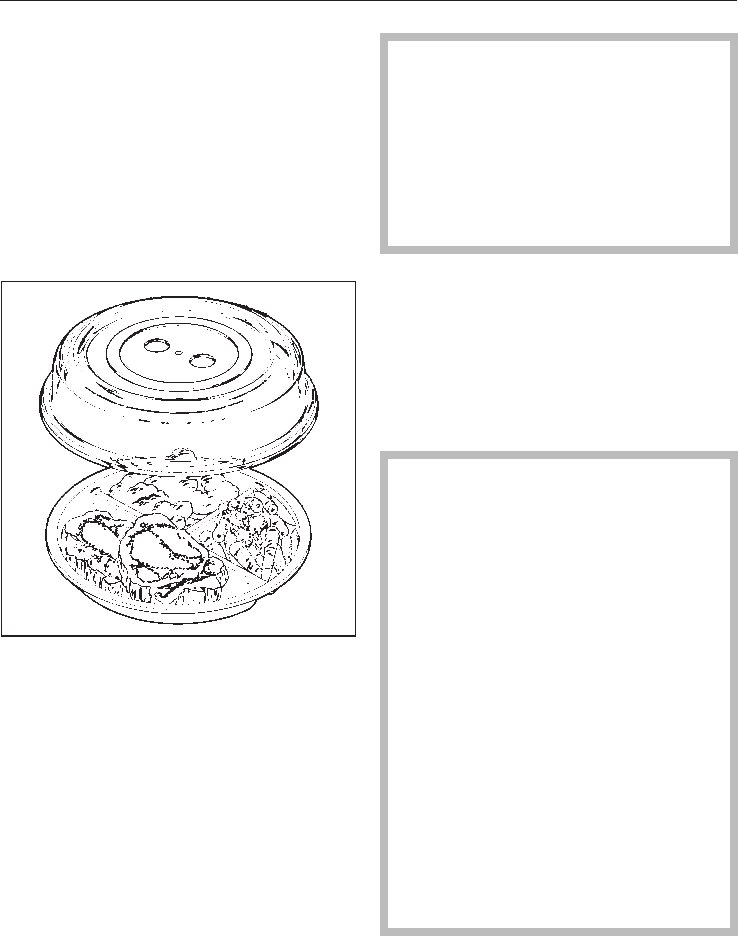
The cover
–
prevents too much steam escaping,
especially when cooking foods which
need longer to cook such as
potatoes.
–
speeds up the cooking process.
–
prevents food from drying out.
–
helps keep the oven interior clean.
Always cover food with the cover
supplied.
Alternatively, use lids or covers made of
microwave safe glass or plastic, or use
a clingfilm recommended for use in a
microwave oven (pierce as instructed
by the manufacturer).
Heat can cause normal clingfilm to
distort and fuse with the food.
,
Sealed containers and glass
jars, such as jars of baby food, must
be opened before they are placed
in the oven. With baby bottles the
screw top and teat must be
loosened. Otherwise, pressure
builds up and can cause the bottle
or container to explode.
Do not use a lid or cover if
–
food coated with breadcrumbs is
being cooked.
– cooking meals which are to be given
a crisp finish.
– the gourmet plate is being used.
,
The cover must only be used
with Microwave Solo mode.
Because the cover can only
withstand temperatures of up to
110 °C, it must only be used in
microwave solo mode and without
the gourmet plate. At temperatures
in excess of 110 °C, the plastic can
melt and fuse with the food.
The cover should not form a seal
with the container. If the cover is
used with a container which only
has a narrow diameter, there might
not be enough room for
condensation to escape through the
holes in the top. The cover could get
too hot and could start to melt.
Suitable containers for microwave ovens
31


















